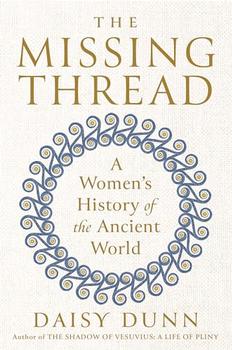Book Club Discussion Questions
In a book club? Subscribe to our Book Club Newsletter!
Please be aware that this discussion guide will contain spoilers!
- On page 142, when confronted with Baird's request that they collect Indian skeletons, Junius says, "It doesn't matter what I want. Science makes its own demands." Do you think that true? Do you think as Junius does, that in the quest for knowledge, the ends justify the means?
- Junius and Leonie collect not only artifacts, but—once Spencer Baird asks them to—bodies for science and for study. What do you feel about bodies being used as scientific specimens? Is this right or wrong? Why?
- Daniel suggests that Leonie send the mummy to a curiosity museum, where people can see it, and it will be kept whole. What do you think of this idea? Do you think it might have been the right choice? Why or why not?
- All the characters in the book seem to wrestle with contradictions, showing one face to the world but experiencing something quite different: Teddy with his talismans and his contempt for the superstitions of the Indians; Junius with his secret study, his bigamy, and his ability to walk away from connections—including his son; Lord Tom as an Indian living, working and loving those who collect and measure his heritage; Daniel with his lies and his resentments, and Leonie. How are each of these characters contradictions? How do you feel they resolve them, or do they?
- Leonie tells Junius that Daniel needs to understand his father. "He needs to know the truth of you. I want him to know who you really are." Who is Junius, really? Do you think him the honorable man Leonie repeatedly says he is? A good man? What about Daniel? Teddy?
- Leonie mentions that, during her childhood, she and her father moved around quite a bit. How do you think it influenced who she is?
- Leonie says "What do we become if our promises don't matter?" Daniel says promises made to the dead should have no impact because the dead cannot ever tell us they were wrong. Who is right? What do our promises mean? How do they define us?
- Daniel tells Leonie that she has lived her life by the choices others made for her. What do think of this? Do you think this is necessarily or always a bad thing, particularly when those choices are made by those who love you?
- The nature of desire and its ability to shape and change us, along with the idea that we have the power to bend the universe to our will, is something Leonie considers possible. Do you think it is? Do you think it was Leonie's subsumed and latent desires that changed everything, as she says, or something else? What kind of energy exists in the universe and do you think we have the power to shape it?
- Daniel says it can't be both fate and coincidence that brought him to Shoalwater Bay. Which do you think it is? What roles do fate and coincidence play in our lives?
- Leonie wonders if knowledge and instinct can be passed through the blood. Do you think it can? Do you believe there is such a thing as genetic memory?
- Do you believe Leonie was the host of her mother's memory? Did her mother's spirit set things it motion, or was it Leonie's subconscious that did so? Or something else? Fate? God?
- What is your opinion of the experiment? Were Junius and Teddy right or wrong to conceive and continue it? Leonie's life to the point that Daniel arrives was mostly happy—do you think Teddy and Junius truly stole something from her? Does science have the right to make such decisions? What if the knowledge it derives from such an experiment can help the whole human race? What does one person's life mean in light of all?
- In the book, the river takes back what belonged to it. Before the dawn of the scientific age, when science was little understood, the Puritans believed that all things in nature were signs of God's will. Do you think this is true? Do you think it can be true? Do you think nature can be sentient? Do you think science disproves this? Or do you think that science trumps all and should? Is there a place for this kind of sentiment?
Unless otherwise stated, this discussion guide is reprinted with the permission of Amazon Publishing.
Any page references refer to a USA edition of the book, usually the trade paperback version, and may vary in other editions.






